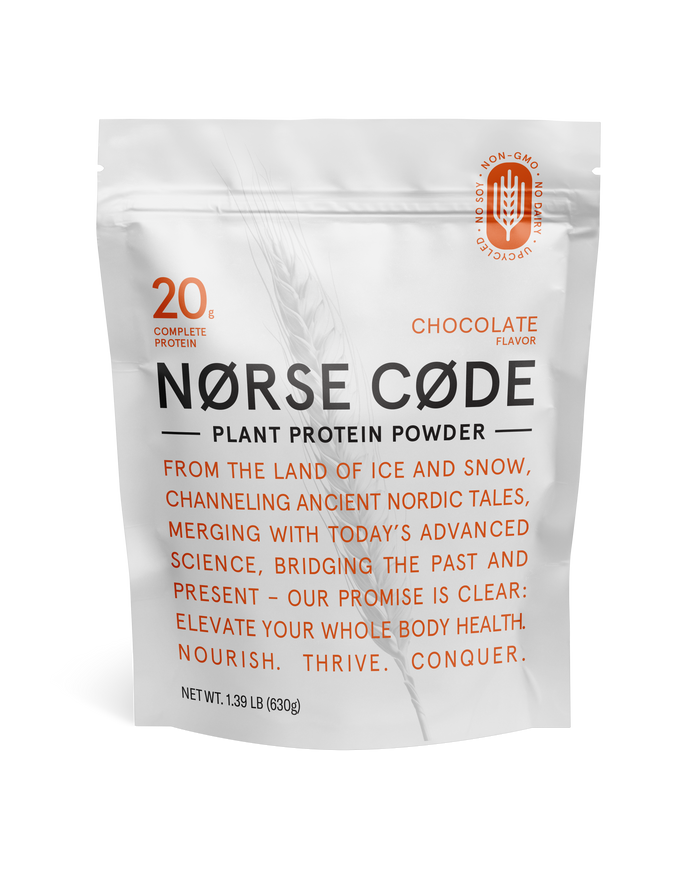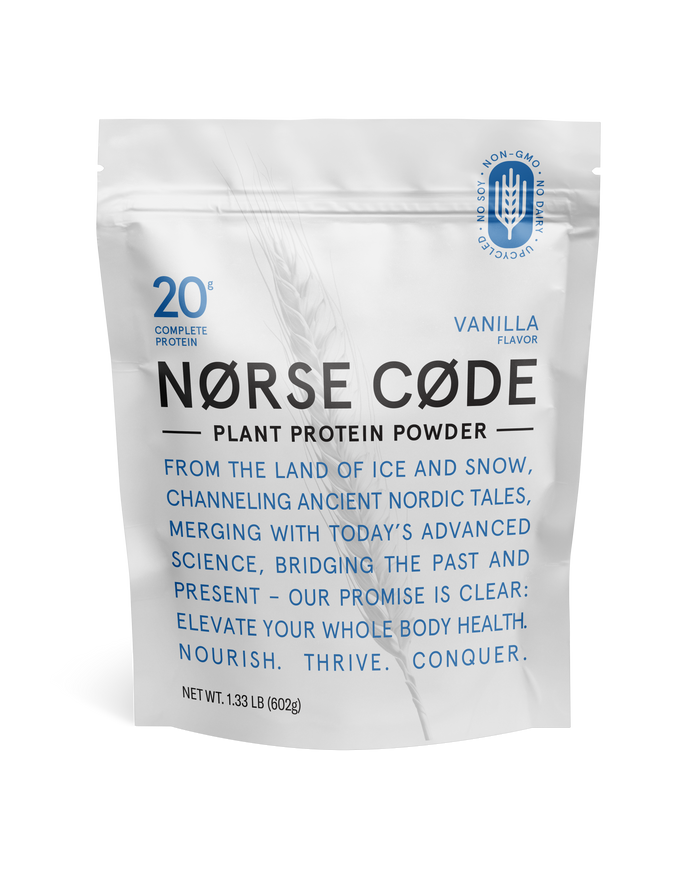
How Much Protein Do I Need Daily: Complete Guide for Optimal Intake
Are you wondering "how much protein do I need daily" to stay healthy, build muscle, or lose weight? You're not alone. Finding your ideal daily protein intake can be confusing with all the conflicting advice from fitness influencers and nutrition experts.
The truth is, how much protein you need daily depends on your individual circumstances. Your age, weight, activity level, and fitness goals all affect your optimal protein requirements. In this comprehensive guide, we'll help you determine exactly how much protein you need daily for your specific situation.
What are proteins?
Proteins are large, complex molecules that serve as building blocks for your overall health and body use. Proteins are made up of smaller units called amino acids. These amino acids are linked together in long chains and folded into specific three-dimensional structures that determine how your body protein functions for skin, hair, and internal processes.
Essential Amino Acids and Building Blocks
Of the 20 different amino acids that make up proteins, nine are considered "essential amino" acids, meaning your body cannot produce them and must obtain them from food. These essential amino building blocks include:
- Leucine (particularly important for build muscle and muscle mass)
- Isoleucine
- Valine (these three are called branched-chain amino acids)
- Lysine
- Methionine
- Phenylalanine
- Threonine
- Tryptophan
- Histidine
A "complete protein" contains all nine essential amino acids in adequate proportions. While most animal proteins are naturally complete, many plant proteins may lack or be low in one or more essential amino acids.
NØRSE CØDE's protein is specifically formulated to provide all essential amino acids in optimal ratios, even though it's plant-based.
Protein's Functions in the Body
Proteins serve numerous critical functions in your body:
- Structural components: Building cells, tissues, muscles, hair, skin, and nails
- Enzymes: Catalyzing biochemical reactions throughout the body
- Hormones: Regulating various bodily functions and processes
- Immune function: Creating antibodies to fight infections
- Transport and storage: Moving molecules throughout the body
- Energy source: Providing calories when needed (though not the body's preferred energy source)
What Are the Benefits of Protein?
Consuming adequate protein offers numerous health benefits beyond just maintaining or building muscle. Here's how optimal protein intake can enhance your overall health and wellbeing:
Muscle Health and Physical Performance
- Muscle maintenance: Prevents age-related muscle loss (sarcopenia)
- Recovery: Repairs muscle damage after exercise
- Strength: Supports improved physical performance and power
- Endurance: Helps maintain energy levels during extended activity
Research in the International Journal of Sport Nutrition and Exercise Metabolism demonstrates that adequate protein intake enhances recovery and performance across various types of exercise.
Weight Management Benefits
- Increased satiety: Protein helps you feel fuller longer
- Higher thermic effect: Your body burns more calories digesting protein compared to fats or carbohydrates
- Preserves lean mass: Adequate protein helps maintain muscle during weight loss
- Stabilizes blood sugar: Helps prevent spikes and crashes that can lead to cravings
A study in the American Journal of Clinical Nutrition found that higher-protein diets led to greater fat loss and better preservation of lean body mass during caloric restriction.
Metabolic and Cellular Health
- Enzyme production: Supports thousands of biochemical reactions
- Hormone regulation: Helps maintain proper hormonal balance
- Immune function: Strengthens antibody production and immune response
- Tissue repair: Accelerates healing of injuries and wounds
Bone Health
Contrary to some misconceptions, research now shows that adequate protein intake supports bone health, especially when combined with sufficient calcium and vitamin D. A meta-analysis in the American Journal of Clinical Nutrition found that higher protein intake was associated with greater bone mineral density and reduced fracture risk.
Cognitive Function
Emerging research suggests that protein, particularly when it contains specific amino acids like tryptophan, tyrosine, and phenylalanine, may support:
- Neurotransmitter production
- Cognitive performance
- Mood regulation
- Age-related cognitive health
NØRSE CØDE protein provides a balanced amino acid profile that supports both physical and cognitive wellbeing.
How much protein do I need a day?
When determining how much protein you need a day, your body weight is the most important factor. Protein needs are typically calculated in grams per kilogram of body weight (g/kg), making it easy to personalize your intake based on your specific measurements.
The standard recommendation for the average adult is 0.8 grams of protein per kilogram of body weight (or about 0.36 grams per pound) as a minimum daily allowance. However, this is just the starting point, and many health professionals now recognize that optimal protein intake may be higher, especially for active individuals.
For a 150-pound (68kg) person, the minimum protein requirement would be about 54 grams per day. However, depending on your activity level and fitness goals, your actual protein needs may be considerably higher.
Daily Protein Requirements by Weight
The most accurate way to calculate how much protein you need daily is based on your body weight. Nutritionists typically recommend gram protein amounts based on kilogram body weight:
- Minimum requirement (RDA): 0.8 gram protein per kilogram body weight (0.36g per pound person)
- Active adults: 1.2-1.7 gram protein per kilogram body (0.54-0.77g per pound person)
- Athletes and heavy training: 1.6-2.2 gram protein per kg body (0.73-1.0g per pound person)
- Adults over 40: 1.0-1.5 gram protein per kilogram body (0.45-0.68g per pound person)
For a 150-pound (68kg) person, this means consuming between 54g (minimum) and 136g (athletic training) of protein daily. These gram kilogram calculations help determine your specific protein need.
How much protein do you need?
How much protein you need depends on several personal factors beyond just your body weight. Here are the key considerations that influence your individual protein requirements:
Age Factors
As we age, our bodies become less efficient at utilizing protein, a phenomenon known as "anabolic resistance." Research has shown that adults over 40 typically need more protein to maintain muscle mass:
- Adults under 40: Standard recommendations based on activity level
- Adults over 40: Add 0.1-0.3g/kg to recommended amounts (approximately 10-25% more)
A study in the Journal of Gerontology found that older adults may need up to 1.0-1.5g/kg daily for optimal muscle maintenance and health.
Activity Level Considerations
Your activity level is one of the most significant factors in determining how much protein you need:
- Sedentary individuals: 0.8g/kg body weight
- Moderately active adults: 1.1-1.4g/kg body weight
- Very active/athletic individuals: 1.4-2.0g/kg body weight
NØRSE CØDE's plant-based protein is formulated to support protein needs across various activity levels with its complete amino acid profile.
Fitness Goals
Different fitness objectives require different protein intakes:
- Muscle maintenance: 1.0-1.2g/kg body weight
- Fat loss while preserving muscle: 1.6-2.2g/kg body weight
- Building muscle mass: 1.6-2.0g/kg body weight
- Endurance training: 1.2-1.6g/kg body weight
Research shows that adequate protein intake, especially with a complete amino acid profile, is crucial for muscle protein synthesis and recovery.
When is the best time to consume protein?
The timing of protein consumption can be nearly as important as the total amount you consume. Research has identified several strategic times to consume protein for optimal benefits:
Post-Workout Protein Timing
Consuming protein within 45 minutes to 2 hours after exercise has been shown to enhance muscle recovery and protein synthesis. During this window, aim for:
- Strength training: 20-40g of complete protein
- Endurance exercise: 15-25g of protein with some carbohydrates
NØRSE CØDE protein provides the essential amino acids needed for optimal post-workout recovery.
Protein Distribution Throughout the Day
Rather than consuming most of your protein at dinner (as many people do), research suggests spreading protein intake evenly across meals:
- Optimal approach: 25-30g of high-quality protein per meal for most adults
- Meal frequency: 3-4 meals containing protein, spaced throughout the day
- Pre-sleep protein: 30-40g of protein before bed may enhance overnight recovery, particularly for active individuals
A study in the Journal of Nutrition found that this evenly distributed approach to protein timing resulted in better overall muscle protein synthesis compared to consuming the same amount of protein concentrated in fewer meals.
Are you getting too much protein?
While protein is essential for health, some people wonder if consuming too much protein could be harmful. Here's what the research shows about excess protein consumption:
Potential Signs of Excessive Protein Intake
Some indicators that you might be consuming more protein than your body needs include:
- Persistent digestive discomfort or bloating
- Unexplained dehydration
- Unusual fatigue
- Headaches
- Strong-smelling urine or breath
Kidney Concerns: Myth vs. Reality
For healthy individuals, research has consistently shown that higher protein intakes do not damage kidney function. A comprehensive review in the Journal of Nutrition and Metabolism concluded that protein intake of up to 2.5-3.0g/kg body weight does not impair kidney function in those without pre-existing conditions.
However, individuals with existing kidney disease should consult healthcare providers about appropriate protein intake levels.
Finding Your Protein Sweet Spot
Rather than worrying about maximum limits, focus on finding your optimal protein intake based on your individual needs and goals. For most active adults, staying within 1.2-2.0g/kg body weight provides benefits without unnecessary excess.
NØRSE CØDE's plant-based protein provides a balanced approach to meeting protein needs without overdoing it.
Can You Have Too Much Protein In Your Diet?
While knowing how much protein you need daily is important, some worry about consuming too much. Let's examine whether excessive daily protein intake poses health risks for your overall health and body use:
Is Too Much Daily Protein Harmful?
For healthy individuals without existing kidney conditions, research suggests that higher daily protein intakes—up to 2.5-3.0 gram protein per kilogram body weight—do not impair kidney function. A comprehensive review in the Journal of Nutrition and Metabolism found no evidence of kidney damage in healthy adults consuming higher-protein diets.
The calorie protein ratio is also important to consider—protein provides 4 calories per gram, so high protein intakes contribute significantly to your daily calorie consumption. However, individuals with pre-existing kidney disease should consult healthcare providers about appropriate daily protein intake.
Tips for getting enough protein
Meeting your daily protein requirements doesn't have to be complicated. Here are practical strategies to ensure you're getting enough high-quality protein:
Start Your Day with Protein
Beginning your day with a protein-rich breakfast helps set the tone for balanced protein intake throughout the day:
- Greek yogurt with berries and nuts (15-20g protein)
- Protein smoothie with NØRSE CØDE plant protein (20g protein)
- Eggs with whole grain toast (15-20g protein)
- Overnight oats prepared with protein powder (15-25g protein)
Research shows that protein-rich breakfasts can help reduce cravings and maintain stable energy levels throughout the day.
Smart Protein Snacking
Strategic snacking can help you meet your protein targets between meals:
- Handful of nuts and seeds (5-10g protein)
- Greek yogurt cup (15-20g protein)
- Protein bar made with quality ingredients (10-20g protein)
- Hummus with vegetables (8-10g protein)
Protein-Focused Meal Planning
Plan your weekly meals with protein as the centerpiece:
- Prepare protein sources in bulk for the week
- Keep quick protein options on hand for busy days
- Incorporate a variety of protein sources for complete amino acid profiles
- Use plant-based protein powders to supplement when needed
Plant-Based Protein Strategies
For plant-based eaters, meeting protein needs requires some strategic planning:
- Combine complementary protein sources (beans and rice, hummus and pita)
- Include protein-dense plant foods like lentils, tofu, tempeh, and seitan
- Supplement with high-quality plant protein powders like NØRSE CØDE
- Consider protein content when selecting plant milks and other alternatives
Foods high in protein
Meeting your protein requirements is easier when you know which foods provide the most protein per serving. Here's a breakdown of high-protein foods across different categories:
Animal-Based Protein Sources
- Lean meats: Meat dairy options like chicken breast (31g per 100g), turkey (29g per 100g), and lean beef (26g per 100g) provide complete protein protein
- Fish and seafood: Tuna (30g protein per 100g), salmon (25g protein per 100g), shrimp (24g protein per 100g)
- Eggs: Whole eggs (6g protein per large egg), egg whites (3.6g per white) benefit overall health
- Dairy: Meat dairy products like Greek yogurt (10g protein per 100g), cottage cheese (11g protein per 100g), whey protein (80-90g protein per 100g) help consume gram amounts needed
Plant-Based Protein Sources for Daily Needs
- Upcycled barley protein: NØRSE CØDE's sustainable plant base protein offers a complete protein profile with excellent digestibility and provides the gram protein amounts you need
- Legumes: Beans, lentils, and peas provide plant base protein along with fiber (about 9g protein protein per 100g)
- Tofu and tempeh: These soy-based plant base foods offer complete protein with good digestibility (8-19g protein per 100g)
- Seeds and nuts: Hemp, chia, and various nuts provide protein alongside healthy calorie protein benefits
Protein Supplements
- Animal-based supplements: Whey protein (20-25g per scoop), casein protein (20-24g per scoop)
- Plant-based supplements: NØRSE CØDE plant protein (20g per scoop), pea protein (20-24g per scoop), rice protein (20-22g per scoop)
When selecting protein sources, consider not just the protein content but also the quality, digestibility, and complementary nutrients each food provides.
NØRSE CØDE's sustainable protein powder offers a convenient way to boost your protein intake with the added benefits of a complete amino acid profile and environmental sustainability.
How Much Protein Do I Need Daily?
Your daily protein needs vary based on several factors, but scientific research provides clear guidelines. Here's how much protein you need daily according to experts:
Daily Protein Requirements by Weight
The most accurate way to calculate how much protein you need daily is based on your body weight. Nutritionists typically recommend protein amounts based on body weight:
- Minimum requirement (RDA): 0.8 grams per kilogram of body weight
- Active adults: 1.2-1.7 grams per kilogram
- Athletes and heavy training: 1.6-2.2 grams per kilogram
- Adults over 40: 1.0-1.5 grams per kilogram
For a 150-pound (68kg) person, this means consuming between 54g (minimum) and 136g (athletic training) of protein daily.
How Much Protein Do I Need Daily Calculator
To calculate how much protein you need daily and determine your need gram amounts, follow these simple steps:
- Convert your weight to kilograms (divide pound person weight by 2.2)
- Determine your activity level for accurate gram kilogram calculations:
-
- Sedentary: multiply kg body by 0.8
- Moderately active: multiply kg body by 1.2-1.4
- Very active/athletic: multiply kg body by 1.6-2.0
- Over 40 years old: add 0.2 to your multiplier for better overall health
Example calculation: A 160-pound (72.7kg) moderately active 45-year-old would need to consume gram amounts of approximately 87-116g of protein daily (72.7 kilogram body × 1.2-1.6 gram protein per kg).
Conclusion: Finding Your Optimal Protein Intake
The question "how much protein do I need daily?" doesn't have a universal answer. Your protein need depends on:
- Your body weight and kilogram body measurements
- Age and metabolic factors affecting body use of protein
- Activity level and whether you want to build muscle or maintain muscle mass
- Health and fitness goals for overall health
- Whether you prefer meat dairy sources or plant base options
By applying the principles in this guide, you can determine the optimal amount for your unique situation and ensure you're supporting your body's needs.
At NØRSE CØDE, we believe in nutrition that's both scientifically sound and environmentally responsible. Our plant-based protein offers a sustainable way to meet your protein needs without compromising on quality, digestibility, or taste.
Whether you're looking to maintain muscle mass as you age, support an active lifestyle, or simply ensure you're meeting your nutritional needs, adequate protein is essential—and finding your personal protein sweet spot is key to looking and feeling your best.
Try NØRSE CØDE's sustainable plant protein today and experience the difference that thoughtfully formulated, environmentally conscious nutrition can make in your daily wellness routine.
This article is for informational purposes only and should not be considered medical advice. Always consult with a healthcare provider before making significant changes to your diet, especially if you have existing health conditions.
NØRSE CØDE Chocolate Plant Protein Powder
- Regular
- $44.50
- Sale
- $44.50
- Regular
-
- Unit Price
- per
NØRSE CØDE Vanilla Plant Protein Powder
- Regular
- $44.50
- Sale
- $44.50
- Regular
-
- Unit Price
- per
NØRSE CØDE Stainless Shaker
- Regular
- $35.00
- Sale
- $35.00
- Regular
-
- Unit Price
- per




